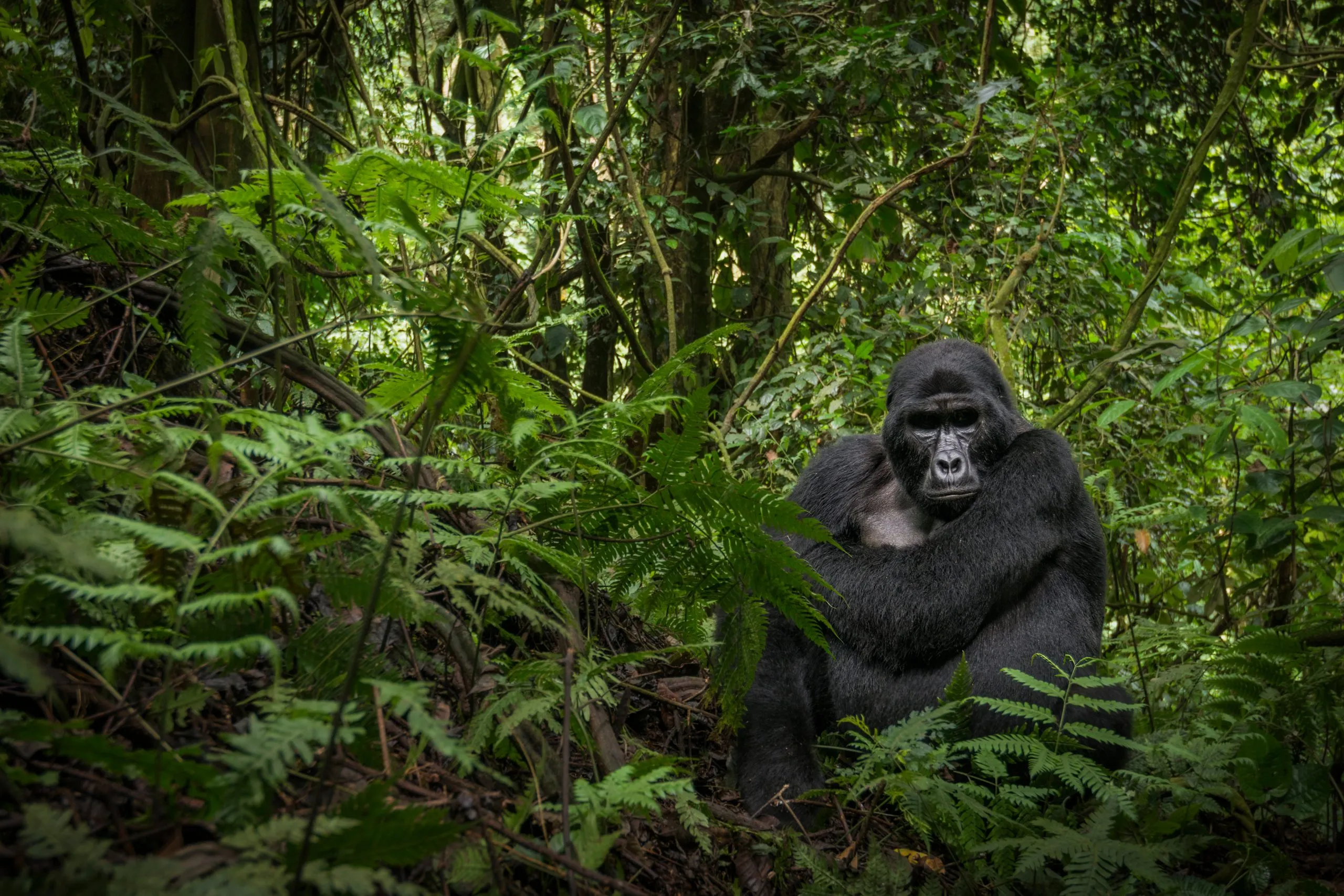Uganda is a country that truly embodies the raw essence of the African continent. It’s a land where the sun-drenched savannahs meet lush rainforests, and where the mighty Nile River gives life to an incredibly diverse ecosystem. Uganda’s rich tapestry of landscapes ranges from snow-capped mountain ranges to expansive lakes and dense jungles.
Its cultural diversity, with over 56 tribes, each with its unique customs, language, and traditions, offers a rich mosaic of cultural experiences. From the adrenaline-pumping adventure of white-water rafting on the Nile to the tranquility of watching a sunset over the savannah, Uganda promises a journey of discovery and wonder at every turn.
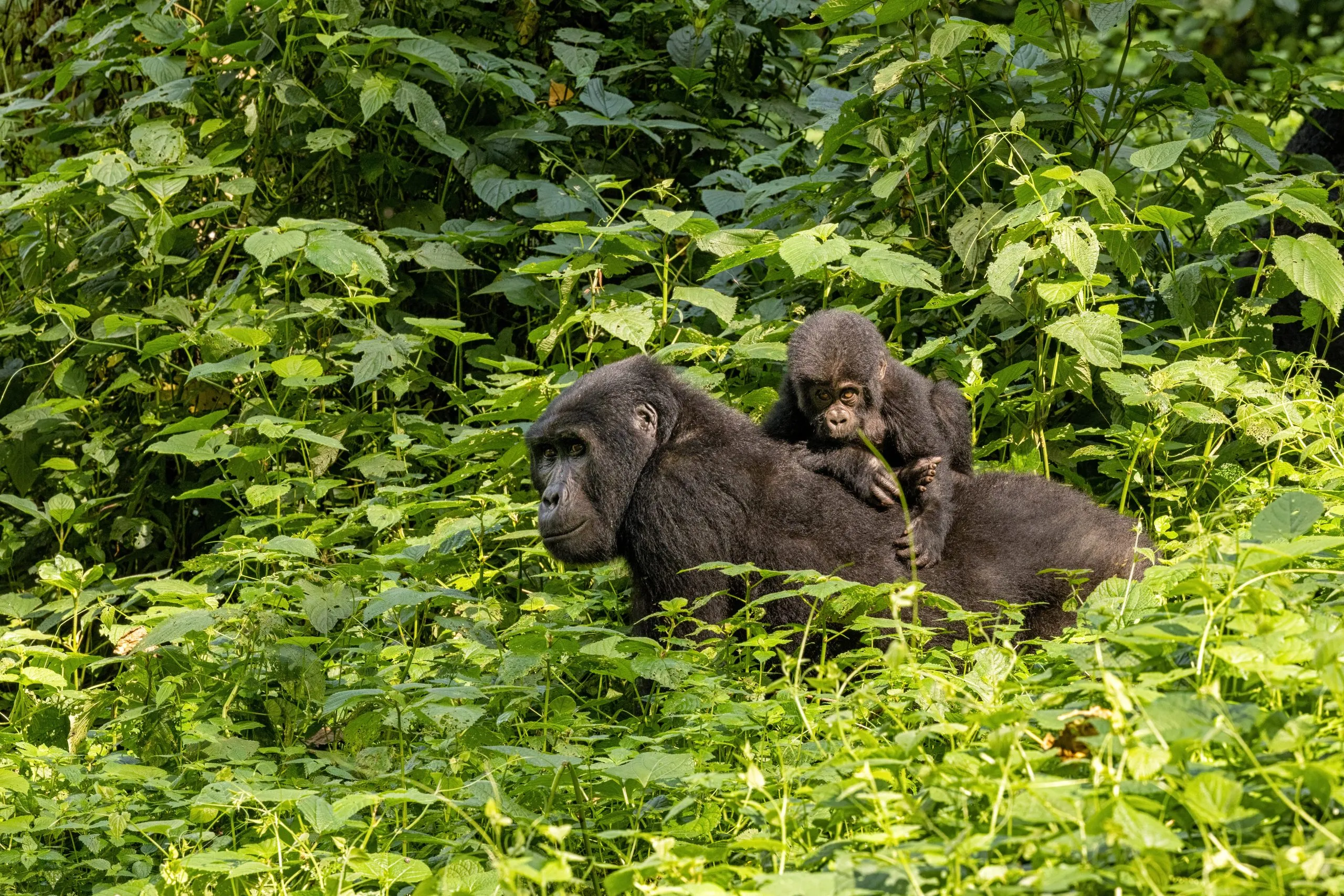
Which locations in Uganda should I visit on a safari?
1. Bwindi Impenetrable Forest
A UNESCO World Heritage site, Bwindi is not only home to slightly less than half of the world’s mountain gorillas but also provides refuge to elephants, chimpanzees, and various bird species. The experience of trekking through this ancient, mist-covered forest to spend time with the gentle giants is nothing short of magical. The forest’s biodiversity extends beyond its most famous inhabitants, with over 120 mammal species and over 350 bird species, making it a critical conservation area.
Visit Bwindi Impenetrable Forest on the 3-Day Uganda Gorilla Habituation Experience.
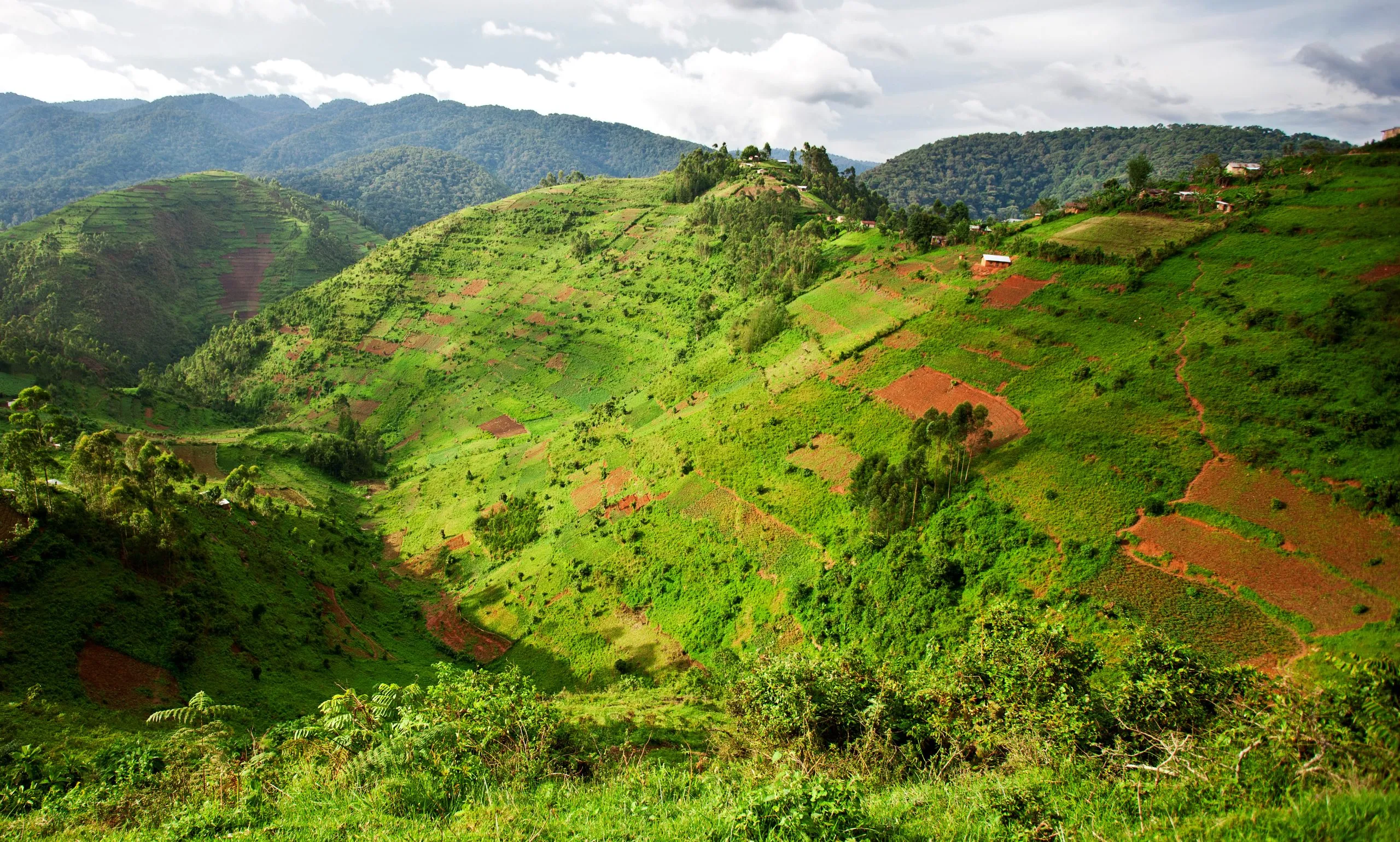
2. Queen Elizabeth National Park
This park’s diverse ecosystems make it a microcosm of the Ugandan safari experience. The park’s savannahs, wetlands, and forests are teeming with wildlife. The unique tree-climbing lions of Ishasha, vast herds of buffalo and elephants, and the famous boat trips along the Kazinga Channel offer a spectacular display of the park’s biodiversity. The park’s location also provides stunning views of the Rwenzori Mountains and the crater lakes in the region.
Visit Queen Elizabeth National Park on the 12-Day Uganda Safari.
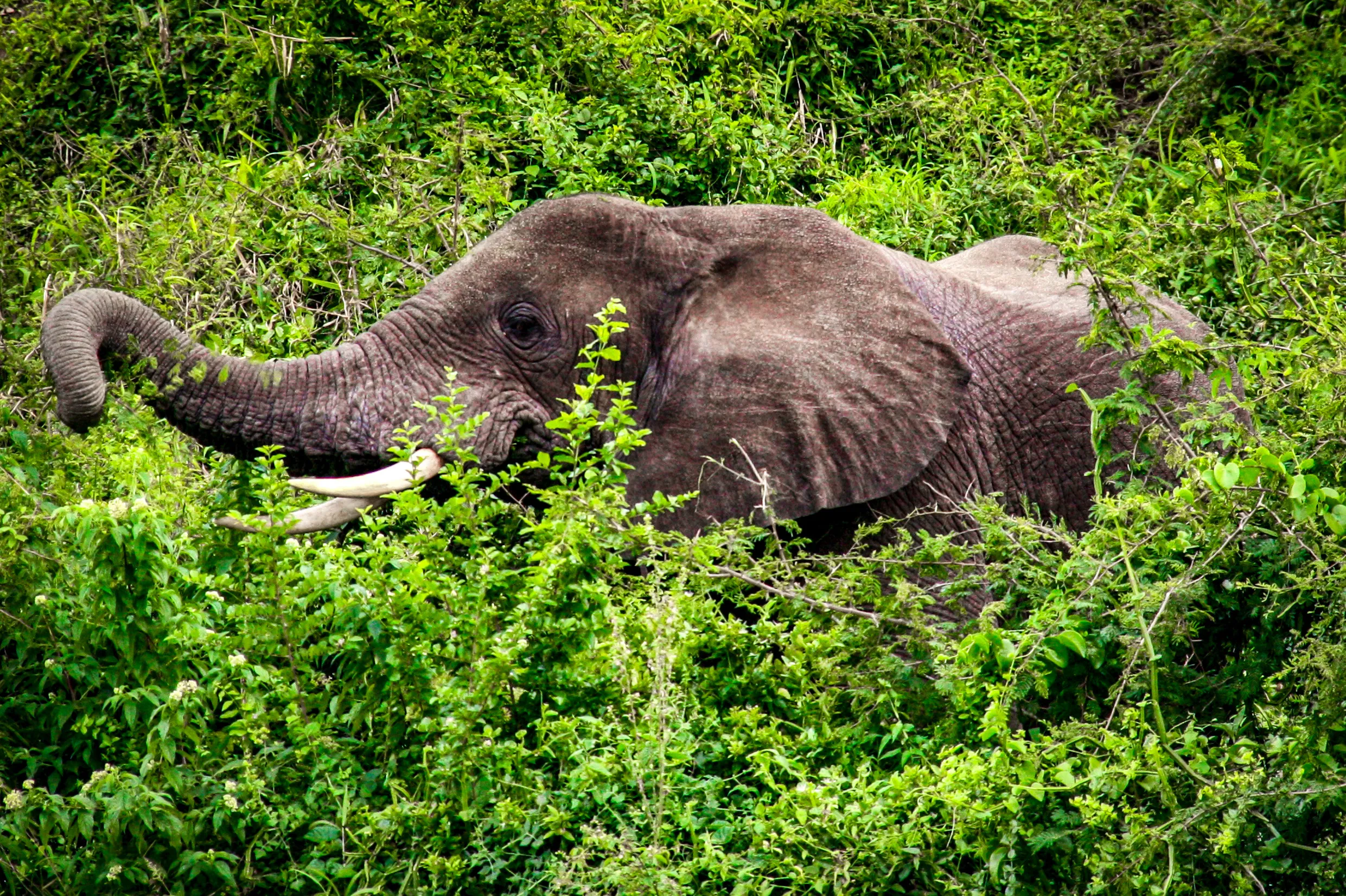
3. Kibale National Park
This park is one of the best places in Africa to track chimpanzees. The park’s 795 square kilometers of rainforest, grassland, and swamp provide habitat to more than just chimpanzees; it’s also home to 13 other primate species, making it one of the most diverse and populous primate parks in the world. The birding in Kibale is also exceptional, with about 375 species recorded.
Visit Kibale National Park on the 15-Day Uganda & Rwanda Combined Safari.
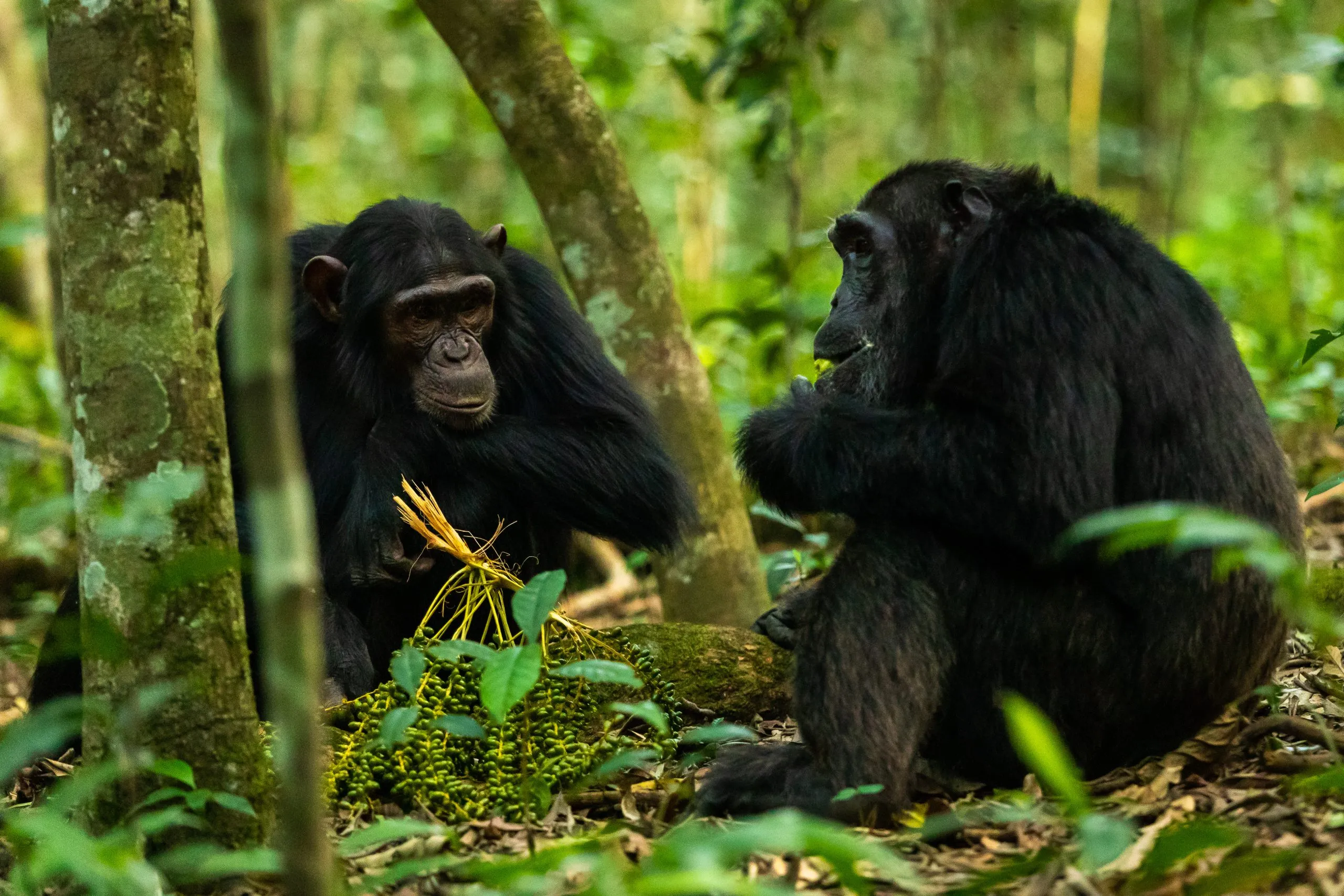
4. Murchison Falls National Park
Named after the dramatic Murchison Falls, where the Nile River forces its way through a narrow gorge before plunging 43 meters, the park is Uganda’s oldest and largest conservation area. The park’s vast landscapes are home to 76 mammal species, including giraffes, buffalos, lions, and leopards. The Nile itself offers one of the best fishing experiences in the world, especially for Nile perch.
Visit Murchison Falls National Park on the 12-Day Uganda Safari.
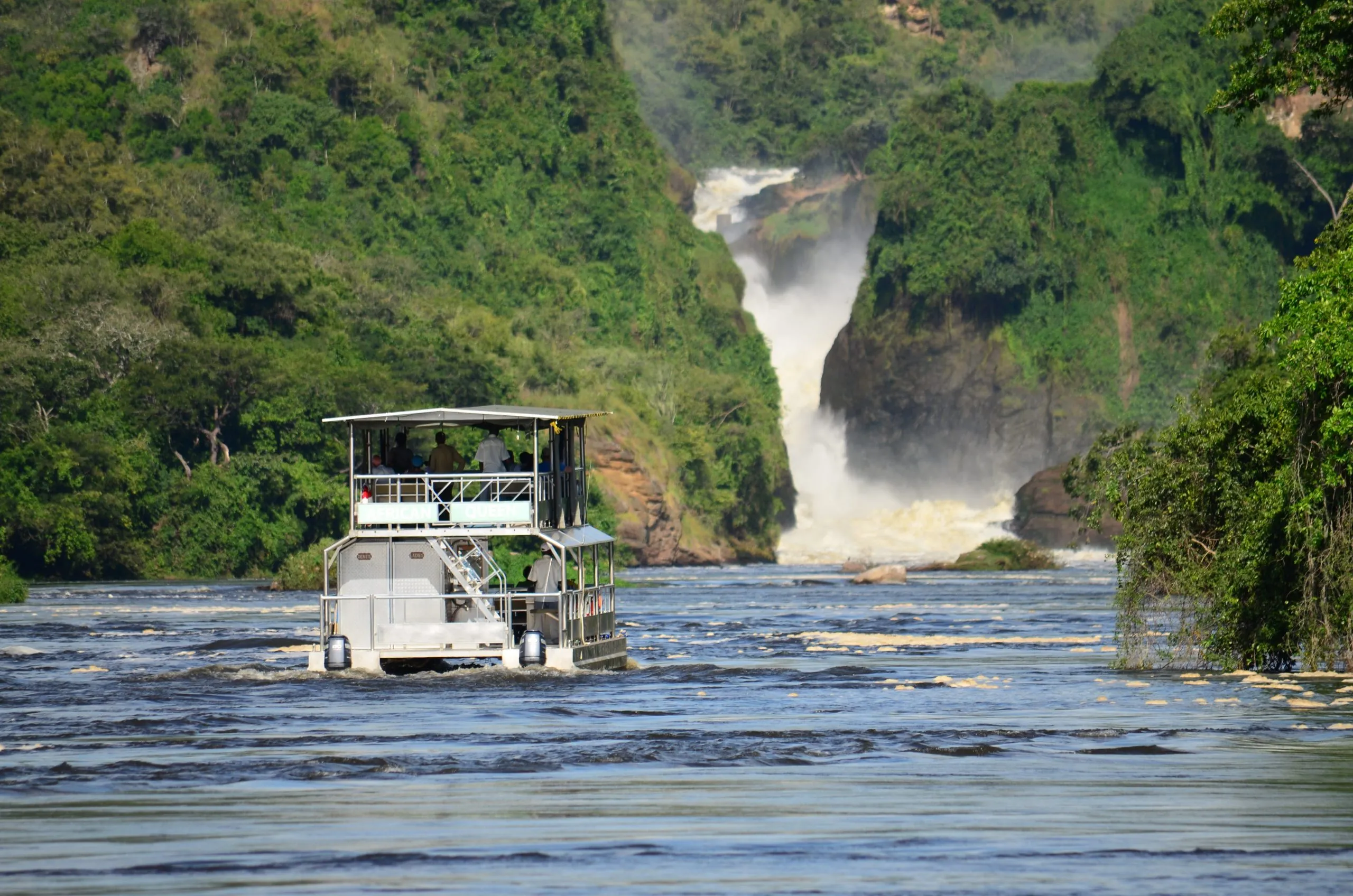
5. Lake Mburo National Park
This park offers a serene safari experience, away from the larger crowds found in other parks. It’s the perfect place to see zebra, eland, and impala, as well as an incredible variety of birds. The park’s varied habitats of dry hillsides, rocky outcrops, bushes, thickets, open and wooded savannas, forests, lakes, and swamps make it a prime location for walking safaris.
Visit Lake Mburo National Park on the 15-Day Uganda & Rwanda Combined Safari.
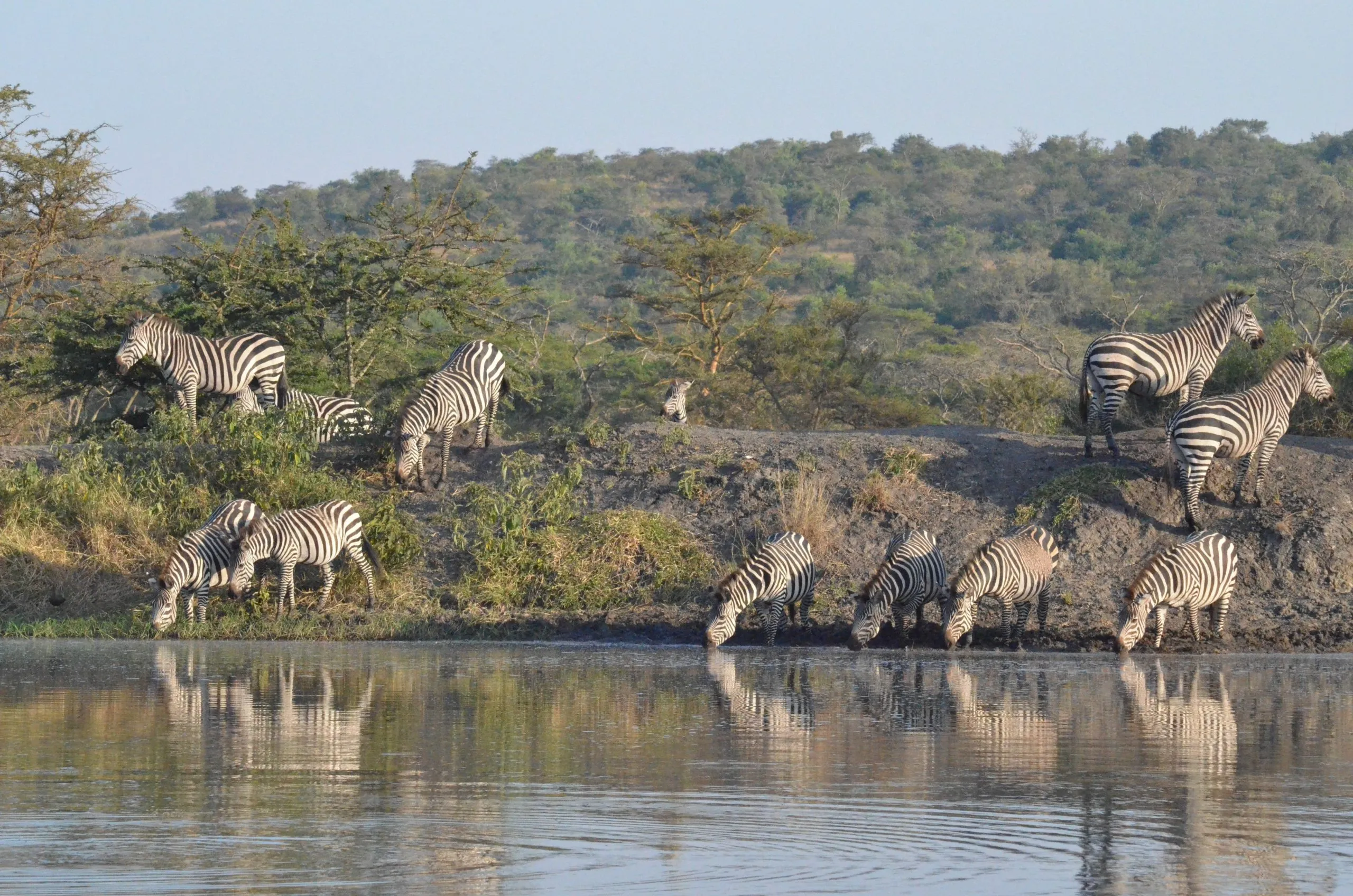
When is the best time to visit Uganda?
The best time for wildlife safaris in Uganda is during the dry seasons from June to August and December to February. Wildlife viewing is generally best at this time because the vegetation is less dense, and animals gather around water sources. However, Uganda’s lush, green landscapes are at their most beautiful during the wet seasons, and this is also the best time for bird watching as migratory birds are present.
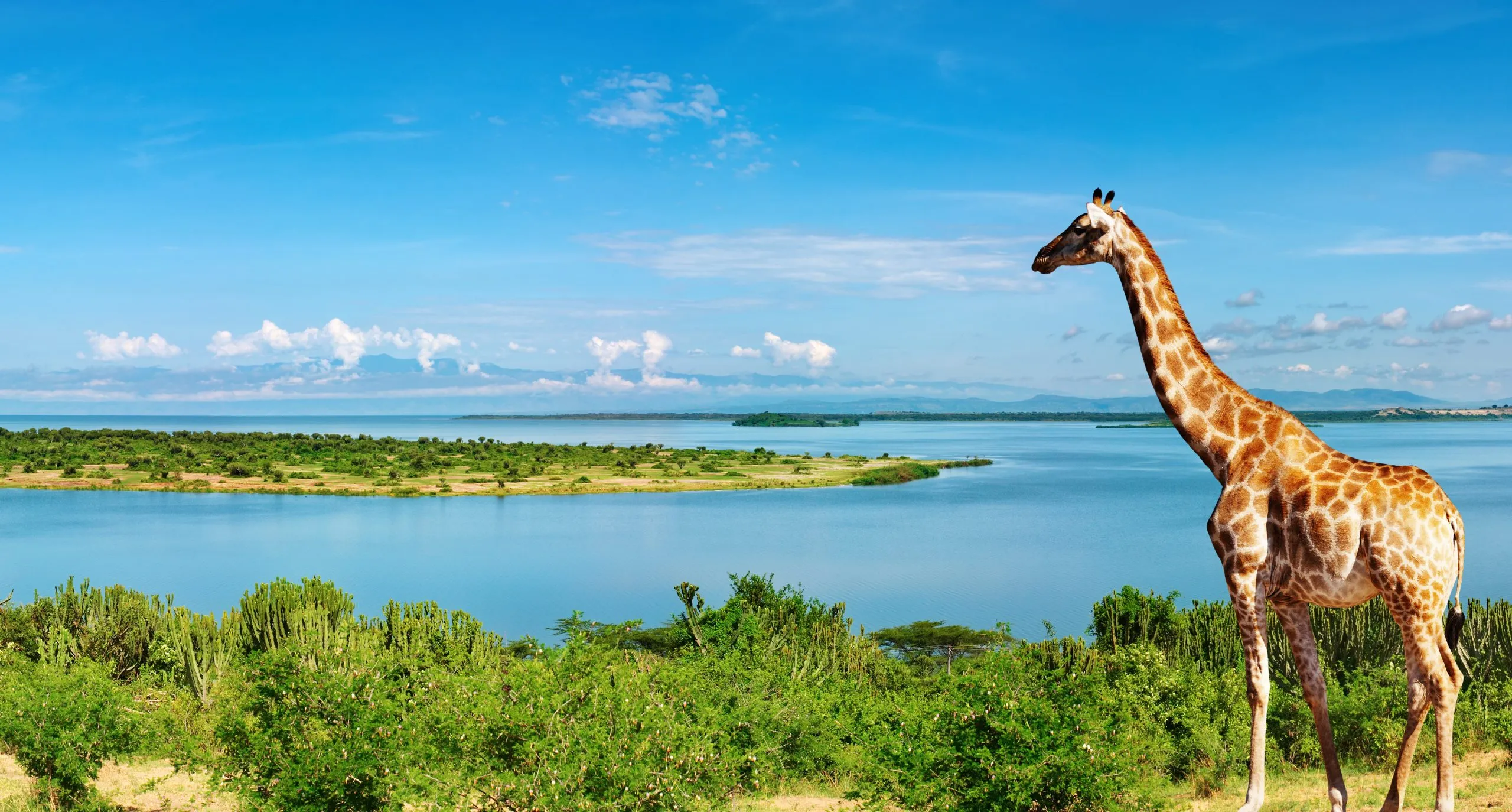
Is Uganda safe?
While Uganda is generally a safe destination for tourists, it’s crucial to observe general safety precautions, especially in larger cities. Petty theft can occur, so it’s advisable to keep valuables secure and be aware of your surroundings. When on safari, always listen to your guide’s instructions – they are trained to ensure your safety around wildlife.
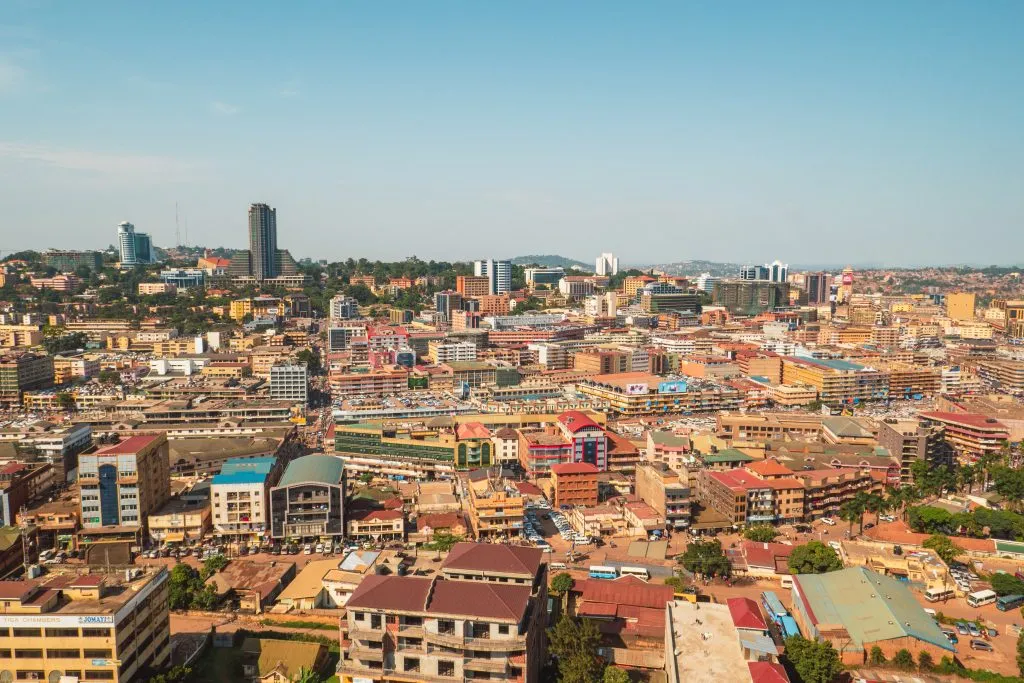
Do I need a visa to enter Uganda?
Most visitors to Uganda will arrive via Entebbe International Airport. Various nationalities can apply for an e-visa or obtain a visa on arrival. It’s recommended to check the latest visa requirements with official sources before your travel. Ensure your passport is valid for at least six months after your planned departure from Uganda.
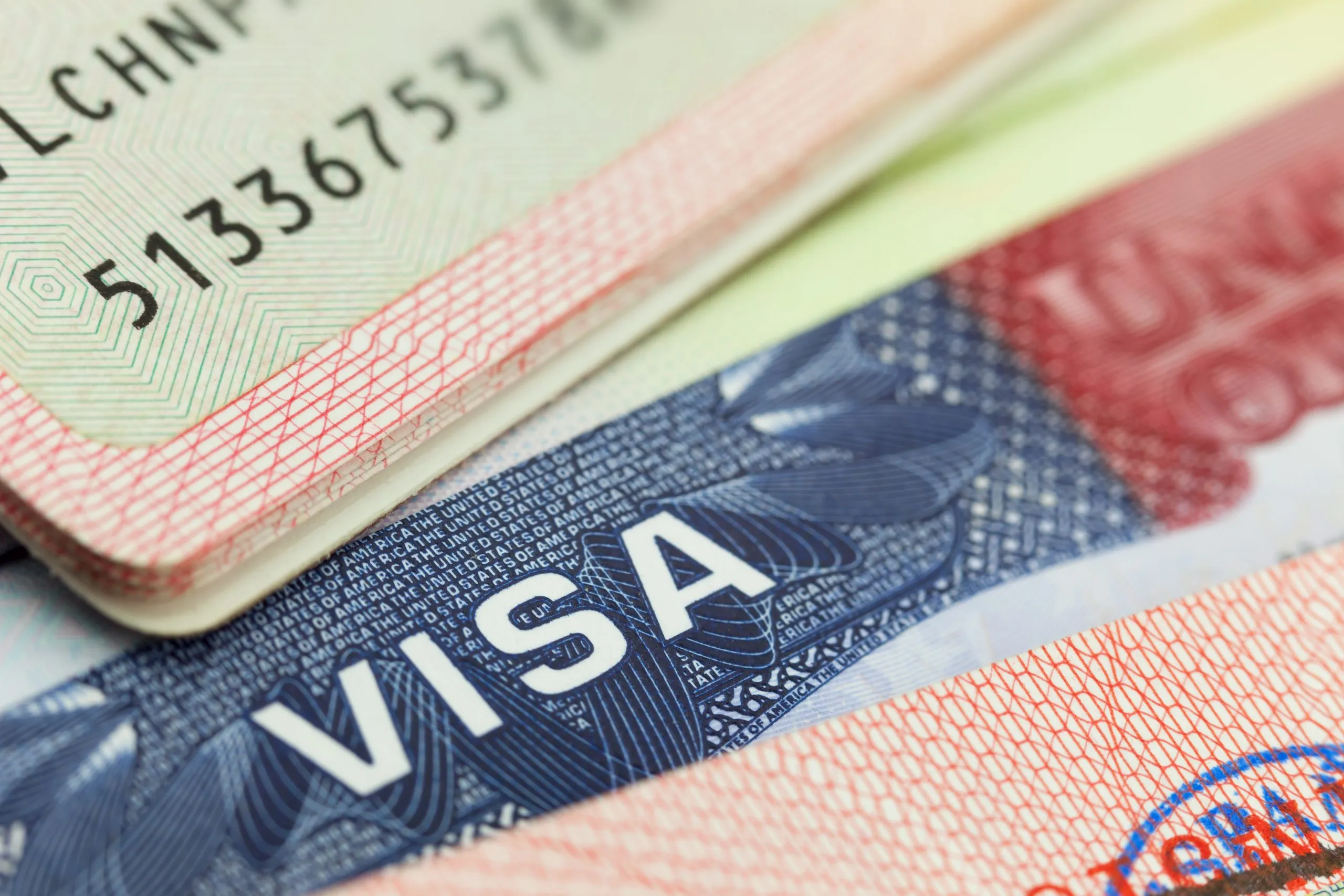
How is local transport in Uganda?
Transportation within Uganda varies from walking and cycling in more remote areas to using matatus (shared minibusses) and boda-bodas (motorcycle taxis) in urban areas. For longer distances and trips to national parks, private vehicles or organized tours are the most convenient and safest options.
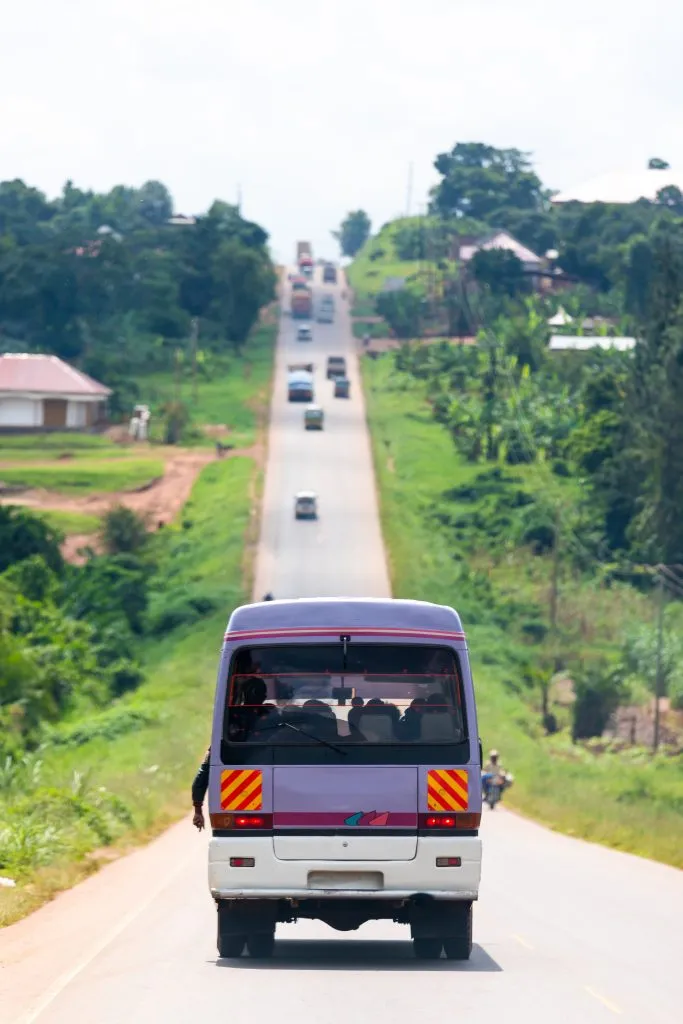
What are the accommodation options in Uganda?
Uganda’s accommodation options range from luxury lodges and tented camps in the heart of the national parks to backpacker hostels and guesthouses in the cities. Many lodges and camps offer stunning views, excellent service, and easy access to safari activities. Eco-lodges and community-based accommodations are also available for those seeking a more sustainable and immersive experience.

What else can I do in Uganda besides seeing wildlife?
Uganda’s diverse landscapes offer an array of activities beyond the traditional game drives. Gorilla and chimpanzee trekking are among the most unique and sought-after experiences. The country’s lakes and rivers are ideal for fishing, boating, and white-water rafting. Cultural tours provide insight into the local traditions and lifestyles of Uganda’s many ethnic groups.

How is the food?
Ugandan cuisine is as diverse as its culture. Staples such as matoke (cooked and mashed green bananas), posho (cornmeal porridge), and luwombo (stew steamed in banana leaves) are commonly served alongside meat and vegetable dishes. Street food, such as Rolex (a chapati filled with eggs and vegetables), offers a quick and tasty option for meals on the go.

What are some etiquette tips for when in Uganda?
Tipping is appreciated in Uganda, especially for good service in the tourism and hospitality industries. Respect for local customs and traditions is important, especially when visiting rural and tribal communities. Learning a few basic phrases in local languages can greatly enhance your interactions and is often warmly received by the locals.

Why Choose Safari Tours Africa to Travel to Uganda?
Uganda offers a unique blend of wildlife, adventure, and culture. From the adrenaline of gorilla trekking to the tranquility of a sunset over the Nile, a safari tour in Uganda is a journey through a vibrant and diverse natural landscape. The warmth of its people and the richness of its culture add depth and color to the wildlife safari experience, making Uganda a truly unforgettable destination.


